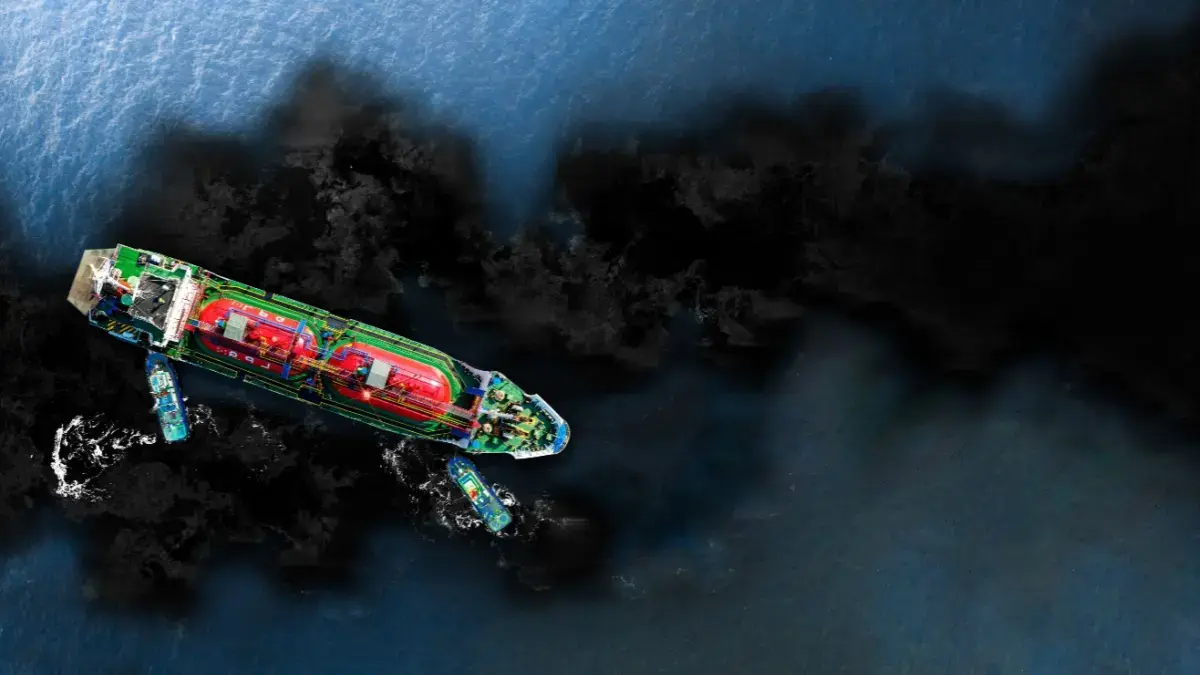The ghost fleet of Russia, consisting of outdated and uninsured oil tankers, poses a serious threat to the Baltic Sea. With over 430 identified vessels, their activity has significantly increased since the invasion of Ukraine in 2022, according to a Finnish expert. Operating under poorly regulated flags and often without GPS, these ships navigate shallow waters, raising the risk of accidents that could lead to an oil spill, harmful to the coastal nations.
The essence of the information
- The ghost fleet of Russia could cause an oil spill in the Baltic Sea.
- Outdated and uninsured oil tankers increase the risks.
- An expert reports an increased risk following the invasion of Ukraine.
- More than 430 ships identified, sailing under poorly regulated flags.
The ghost fleet of Russia: an immediate threat to the Baltic Sea
The ghost fleet of Russia, primarily comprised of outdated and malfunctioning oil tankers, presents a major risk to the ecosystem of the Baltic Sea. These vessels, which are often uninsured, are operating in increasingly dangerous waters, heightening the chance of potentially catastrophic maritime accidents.
A context of geopolitical tension
According to a Finnish expert, the risk has significantly increased since the invasion of Ukraine in 2022. The geopolitical situation has not only disrupted traditional shipping routes but has also forced these vessels to operate under precarious and often illegal conditions. More than 430 ships have been identified as part of this ghost fleet, which is navigating through risky shipping zones.
Alarming sailing conditions
Operations in shallow waters enhance the likelihood of accidents, as ships are more likely to encounter obstacles or run aground. Furthermore, navigation is often carried out under the flag of poorly regulated countries, such as Gabon and Liberia, allowing these vessels to evade strict regulations and safety checks. The crews, often inexperienced, are poorly prepared to handle the winter conditions of the region, further complicating the situation.
Manipulation of navigation systems
To avoid penalties that would be imposed on them, these ships often turn off their GPS and AIS (Automatic Identification System), making tracking and identification difficult. This delicate maneuver allows them to evade the vigilance of authorities but increases the risk of collisions or other serious incidents at sea.
The Sahara Dust That Regularly Blows Over Europe Is Radioactively Charged
Potential environmental consequences
An oil spill resulting from such an accident could have devastating effects on several coastal countries of the Baltic Sea. The ecological consequences would be dramatic, with adverse impacts on marine life and local economies dependent on fishing and tourism. In the event of an accident, the financial burden of cleanup could also fall on Danish taxpayers, raising questions about the responsibility and liability of companies operating under the flag of the ghost fleet.
Measures from the European Union
To counter this phenomenon, sanctions from the European Union have been aimed at this ghost fleet due to its central role in Russian oil exports. However, the effectiveness of these sanctions remains uncertain, given the determination and ingenuity of the operators of these vessels. The lack of adequate oversight in the shipping areas where these ships operate makes the enforcement of these measures even more complex.
Maritime safety issues
The threat posed by the ghost fleet of Russia highlights critical questions regarding maritime safety in the Baltic Sea region. A coordinated effort among coastal countries, international organizations, and maritime authorities is essential to navigating these turbulent waters and protecting both the maritime environment and the communities that depend on it.

